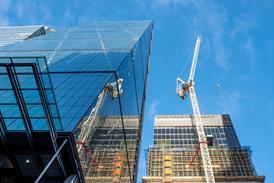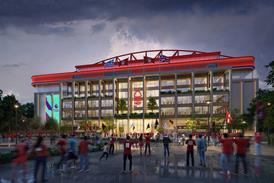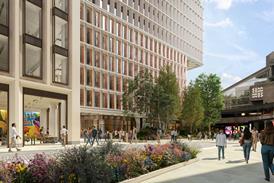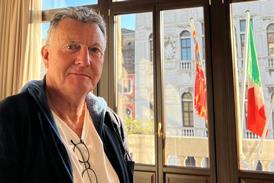All Archive Titles articles – Page 24
-
Archive Titles
Fresh out of school
The National Architecture Student Festival is inviting schools of architecture, engineering, planning, construction management and the built environment to take part in a competition that aims to create of a string of urban interventions during next year’s London Festival of Architecture.
-
Archive Titles
Going into the red
You can’t help wondering if Oscar Niemeyer’s Communist Party HQ in Paris will still be in Party hands when the RIBA holds its Entente Cordiale conference in this iconic 1972 building from October 26-27.
-
Archive Titles
Kids rule OK
‘Kids smell a lie a mile off; it’s like the joke that’s not funny adults laugh, kids won’t. So to get anywhere in this collaboration, it has to be absolutely honest.
-
Archive Titles
Learning process
Ten years into the government’s school improvement programme, spending in the education sector is still on the increase. While new-build gets the headlines, there’s much more to it than that.
-
Archive Titles
The way we work now
Tent London is a new exhibition from the founders of 100% Design and 100% East that runs from 20-23 September at Truman Brewery.
-

-
Archive Titles
Piers of the realm
I found the coastal towns article by Fred Gray very interesting (RIBAJ May 07).
-
Archive Titles
Raising the roof
While I enjoyed reading your issue about the Royal Festival Hall reopening (RIBAJ June 07), there is an error at the top of the first paragraph on page 47 where it is stated ‘But the overall massing of the hall, complete with its gently curving boat-hull roof, is present and ...
-
Archive Titles
Screen stars
Foreign Office Architects came to international stardom with Yokohama Port Terminal. Now it’s low-cost social housing in Spain, and that takes imagination too. Words and photos by Hugh Pearman
-
 Archive Titles
Archive TitlesCPD Module 17: Pultruded fibreglass technology in fenestration
Welcome to Module 17 in our occasional series of CPD features designed to broaden your professional knowledge while you work. This module is sponsored by Marvin Architectural.
-
 Archive Titles
Archive TitlesThe acoustician — Larry Kirkegaard
The sound but not the fury – acoustician Larry Kirkegaard talks gasping fish and warm hugs with Jan-Carlos Kucharek.
-
 Archive Titles
Archive TitlesWe can all learn from each other
Goh Chong Chia represents Singapore on RIBA Council so I flew to his city state to meet our 200 members there and to talk about the RIBA’s campaigns, particularly PFI.
-
 Archive Titles
Archive TitlesThe architect — Allies and Morrison
The Allies and Morrison team (minus Graham Morrison, who was out of the country at the time) talk to Grant Gibson about dealing politely but firmly with a listed masterpiece.
-
Archive Titles
Coasting along
In recent months the RIBAJ letters page has been used to abuse the magazine’s design.
-
Archive Titles
Underground assets
Inspired by the RFH’s original environment strategy, engineer Max Fordham is proposing a grey water pipeline along the South Bank.
-
 Archive Titles
Archive TitlesBack by popular demand
The Royal Festival Hall has retained its place in British affections through the vagaries of six decades. It reopens this month after a £111 million redevelopment. By Hugh Pearman. Portraits: Steve Speller
-
 Archive Titles
Archive TitlesThe project manager — Ian Blackburn
A project manager who reads music and sings? The tall, studious Ian Blackburn fits none of the usual construction-industry stereotypes. He tells Grant Gibson how he got a grip on the RFH project.
-
 Archive Titles
Archive TitlesWhat is... the Festival of Britain Society?
An organisation created to keep alive the spirit of 1951 is the short answer. Its first informal meeting took place in 1989 after a talk by Abram Games to Portsmouth Philatelic Society on how he came up with the festival logo.
-
Archive Titles
Heart and soul of the city
The article ‘Soul-searching cities’, by Philip Sheldrake (RIBAJ April 07), is a refreshing and timely reminder of the need for identity in the urban context.








